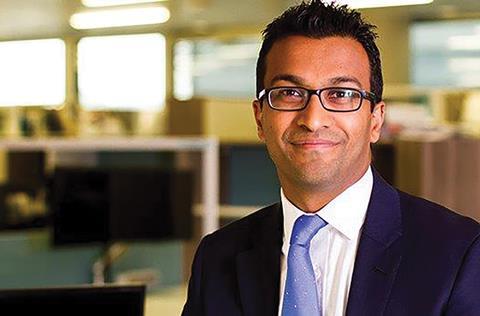Senior associate at Fieldfisher

I was an argumentative child who kept asking ‘why?’. When I chose to study law, I knew that I wanted to work in an area where I could help others, so personal injury work is perfect.
After law school, I completed several paralegal placements at various firms. This gave me insight into where I wanted to specialise. Like others, I had good academic results but I struggled to get a training contract. I even resorted to turning up at law firms to see if they could offer me any work experience, just to get my foot in the door.
I completed my training contract at a small, niche practice in Watford. I worked on high-profile cases and was given a lot of responsibility early on in my career. After qualification, I moved to a mid-sized firm in Reading before joining Fieldfisher in 2009.
We developed the Career Focus Partnership with Queen Mary University of London to encourage under-represented groups to pursue a legal career and, particularly, to aim for large corporate City firms like Fieldfisher. I graduated from Queen Mary in 2004, but certainly didn’t feel that I would fit into a large City firm because I had no understanding or experience of such firms nor did I know anyone who worked in one.
I’ve been fortunate to work my way up into a top-20 firm, but for a time I honestly believed there were only certain areas of law I could work in and only certain levels of firm into which I’d fit. Having discussed my experiences with Queen Mary, we agreed to set up the Career Focus Partnership in 2017 to offer under-represented ethnic groups access to Fieldfisher, to build confidence and skills to enable them to compete on a level playing field.
In practical terms, that means offering workshops on transferable skills and access to a mentor. The overall aim is to demystify the whole process and to encourage these students to aim high.
The reason Fieldfisher takes on cases from other firms is often because of the pressure put on clients to settle
The programme was a huge success in its first year. Of the 20 students who attended our workshops, four were offered internships and two secured vacation scheme places and training contracts with the firm. The scheme will now run annually and we are hoping to expand it to other universities.
I will never forget my first successful trial shortly after joining Fieldfisher. The experience was both frightening and enjoyable (since we won). Recently, being successful in the Court of Appeal on a complex costs argument is another highlight. It is also great to be able to give back to junior solicitors and to mentor students via the Career Focus Partnership.
Clients are often dissatisfied with the attention their case has received or how it is being handled, in terms of pressure to settle far too early on their road to recovery. Most of my clients are catastrophically injured or terminally ill. So it is only right that their case is handled how they expect and that they have full confidence in the team working for them.
The sector has of course been through changes recently, especially with the Legal Aid, Sentencing and Punishment of Offenders Act. Further changes are anticipated, but it is crucial that those injured through no fault of their own – many catastrophically – have access to specialist solicitors able to take on their case.
The reason Fieldfisher takes on cases from other firms is often because of the pressure put on clients to settle. This must be directly linked to some firms’ need to settle cases early and recover costs. I worry that further government and insurance-led changes will accentuate this issue.
On the profession’s efforts to attract aspiring lawyers from underprivileged or under-represented ethnicities, it comes down to whether you can see yourself working at such a firm – and if there is no one like you, that is very difficult to do. Shafagh, who starts her training here next year (and was part of the programme), said that the lightbulb moment for her was simply being here for a week’s internship and realising she could actually work here.
When I started, I rushed into applying to as many firms as I could. That was the wrong approach. Do your research and take your time to find the right firm. Get to know the firm and try to work there in some capacity. This should ensure it is the right fit and will improve your chances of working there permanently.































No comments yet